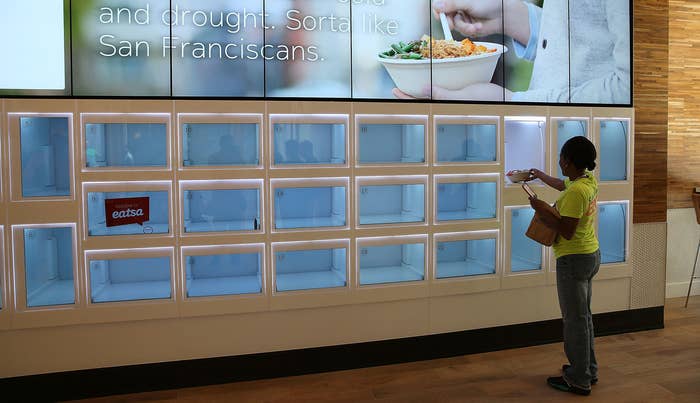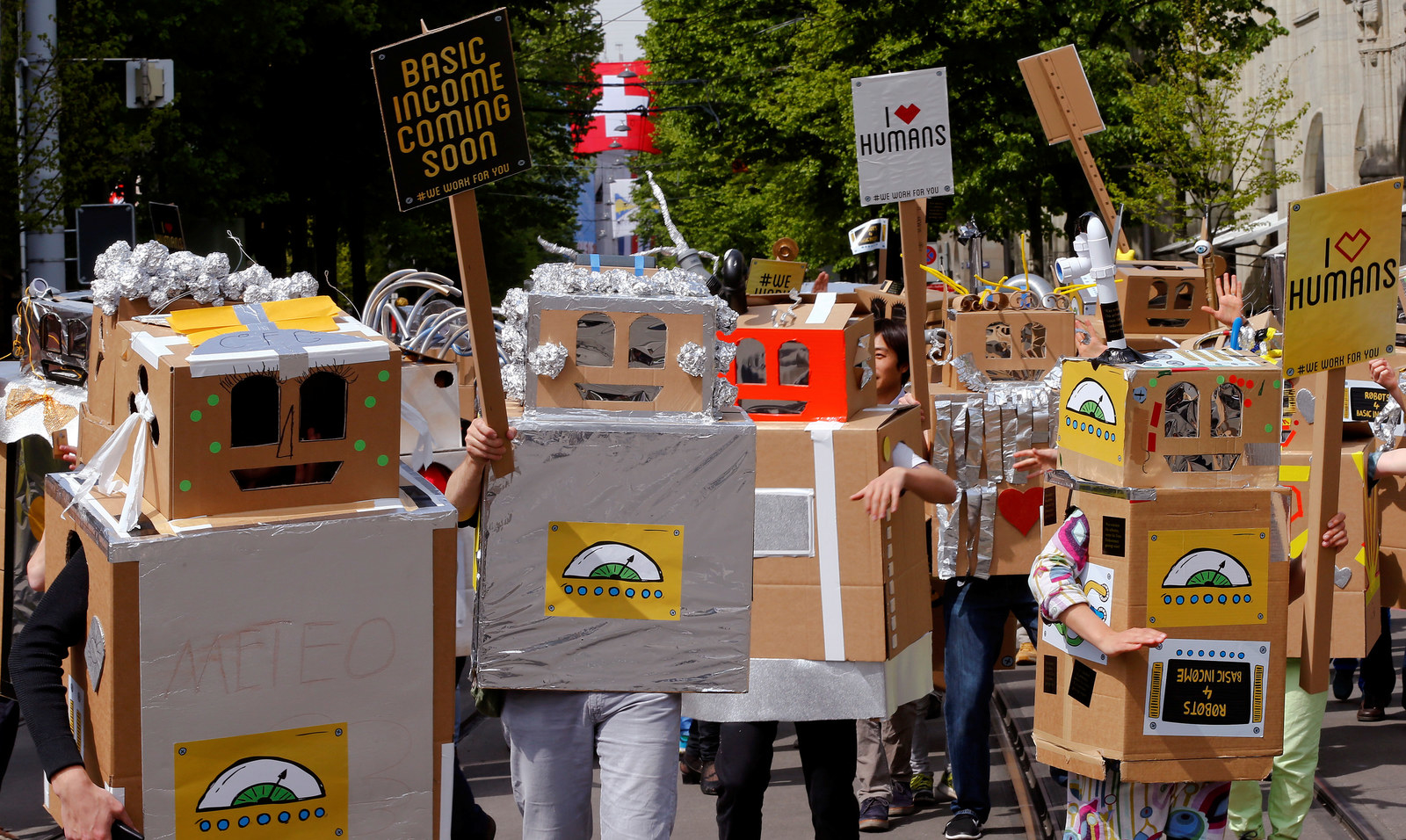
Machines have replaced human work for as long as there have been machines, but in recent years, jobs that long seemed immune to the rise of the robots — restaurant servers, truck drivers, retail staff — have started looking shaky.
Already, at the experimental edges of the economy, you can have dinner in a server-free dining room, watch a driverless truck haul cargo from A to B, and buy your groceries without a human being having anything to do with it. So BuzzFeed News went out and spent a day experiencing the new, job-free economy.
As those technologies go mainstream — and drive the older, human-dependent operations out of business — entire categories of jobs will go extinct.
New jobs will always grow in popularity as old ones decline, most economists insist. But there’s no guarantee they’ll pop up fast enough to replace massive employment categories like restaurant workers or truck drivers, at least not without some serious economic pain in the meantime. And there’s no guarantee the jobs of the future will pay well or offer decent benefits.
So what happens when well-paying middle-class work becomes a historical oddity, like horse-drawn carriages or professional typists? A growing list of technologists, economists, and labor organizers have banded together in recent months to fund studies of universal basic income (UBI), an increasingly popular policy idea in tech circles and on the left that would provide every citizen with a guaranteed monthly income.
Earlier this month, eBay co-founder Pierre Omidyar announced that his organization would be donating half a million dollars to a yearlong pilot program of basic income in Kenya, via the organization GiveDirectly. Facebook co-founder Chris Hughes recently helped launch the "Economic Security Project," a brain trust with a $10 million war chest dedicated to studying and bringing about a viable UBI in the United States.

"Omidyar Network’s foundational belief that empowering people frees them to better themselves, their families, and their communities has great evidence in the growing literature around the benefits of cash transfers," the network wrote in its announcement.
Hughes' group cited increasing "automation, globalization, and financialization," all of which are changing the nature of work and requiring society "to rethink how to guarantee economic opportunity for all."
“Now is the time to think seriously about how recurring, unconditional cash stipends could work, how to pay for them, and what the political path might be to make them a reality, even while many of us are engaged in protecting the existing safety net," they wrote.
The Omidyar Network's Mike Kubzansky and Tracy Williams noted in their announcment of the investment that "there is very little research and empirical evidence" on UBI thusfar.
"While the discussion has generated a lot of heat, it hasn't produced very much light," they wrote.
Others have their own views on what robots will do to jobs, and whether a guaranteed basic income makes sense. For their takes, read our recent interviews with economist Jeffrey Sachs, former Service Employees International Union President Andy Stern, and venture capitalist Sam Altman.

